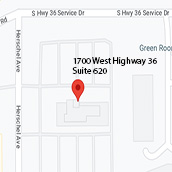What You Need to Know About Catastrophic Injury Claims
Catastrophic harm refers to any impairment that prevents a person from engaging in a productive job and in their normal daily activities. Catastrophic injuries can result in permanent disabilities. An injury that has serious or long-term consequences could be classified as catastrophic in a legal setting. If you have sustained a catastrophic injury, read on for some basic information on these types of personal injuries.
What Factors Are Used to Determine Whether an Injury is Catastrophic?
Two factors can be used to qualify an injury as catastrophic. The first consideration is the debilitating nature of one’s injury and how long that debilitation will continue. If the victim of an injury will be unfit to perform all their life’s functions for a long time, and will need some assistance to carry on with simple tasks, the injury may be deemed catastrophic.
The second factor that is considered when classifying an injury as catastrophic is how it affects the victim’s life and livelihood. Long-term injuries that cause permanent disability or prevent a victim for eking out a living are often considered to be catastrophic.
Types of Catastrophic Injuries
There are many kinds of catastrophic injuries. The following are some of the most common types:
- Spinal cord injuries: These are injuries affecting the spine and that leave a person with some kind of paralysis. In serious cases, a victim loses their senses and ability to move.
- Traumatic brain injuries: These are injuries that affect a person’s mental faculties. The injuries may affect a confined area of the brain or the entire brain.
- Traumatic amputations: These are injuries characterized by any lost limb. Amputations may be recommended for health reasons like for patients with cancer. Traumatic amputations are accidental and affect a significant part of the body.
- Internal organ damage: These are injuries that damage a person’s vital organs. Organ damage can result in the need for transplants, continuous treatment, surgeries, and lifetime medical care. In cases where a transplant cannot be found, the damage can result in the victim’s death.
- Blindness/Deafness: These are injuries that cause deafness or blindness. All the injuries highlighted above can cause the loss of sight or hearing. Some other causes of blindness or deafness may be surgical errors, infections, and chemical exposure.
Compensation for Catastrophic Injuries
When the court finds a defendant liable for causing a plaintiff’s injuries, they may be required to pay damages to the injured victim. Some of the damages that a personal injury lawyer may argue for could include:
- Medical expenses
- Loss of income
- Loss of enjoyment of life
- Pain and suffering
Damages for catastrophic injuries are often very high. The arguments and facts required to prove the extent of damages can be much more elaborate and complex than other personal injury claims.
Some states have placed damage caps on the amount of compensation a plaintiff is entitled to in a medical malpractice case. In most cases, these limits apply to non-economic damages like loss of enjoyment of life, and pain and suffering. The caps range between $250,000 and $750,000. However, in most of these states, a plaintiff could be allowed to receive more than the limit if they have sustained catastrophic injuries.
What To Do If You Are Involved In a Catastrophic Injury
The first step you should make if you are involved in a catastrophic injury is to seek medical attention. The next step is to contact a personal injury lawyer. Your lawyer can help you determine if you have a viable claim; if this is the case, you may submit a letter to the liable party requesting damages. If they accept liability for your injuries, then you can both agree on a reasonable settlement. If you do not agree on a settlement, or if they fail to respond to your claim letter, your lawyer can help you pursue a claim in court.
Thanks to our authors at Needle Ellenberg, P.A. for their insight into Personal Injury Law.






